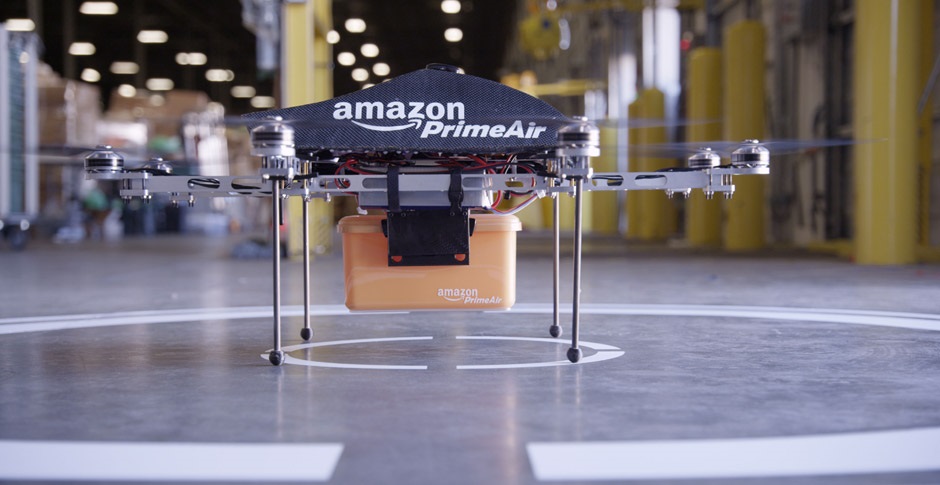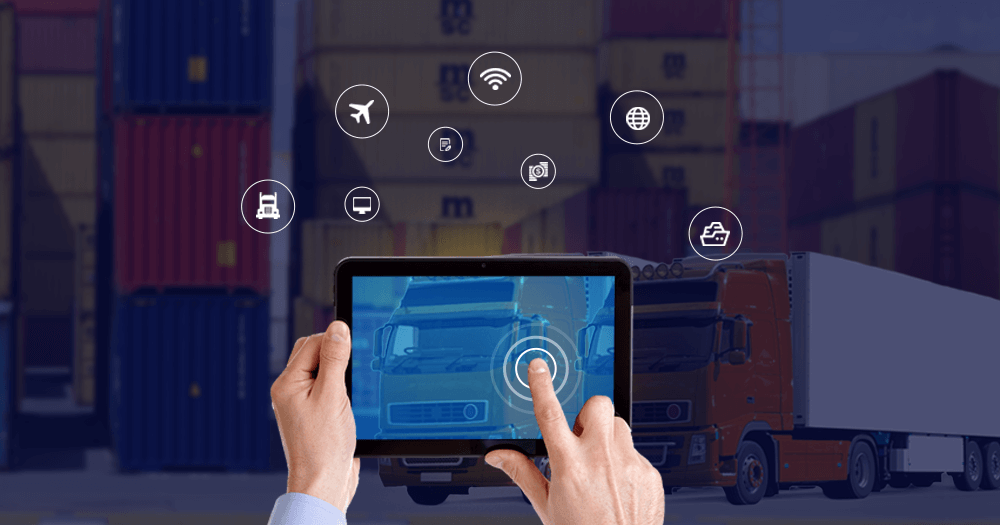Carding Forum
Professional
- Messages
- 2,788
- Reaction score
- 1,320
- Points
- 113
Innovative delivery, new payment methods, artificial intelligence - technologies that have been actively used in the logistics industry in recent years have changed it forever

The active growth of e-commerce in recent years has been largely due to the development of the logistics and delivery market. The technologies that have been applied in this area to maximize customer satisfaction have changed the industry forever. Drones, artificial intelligence, cashless payments have all pushed boundaries and influenced the way we do business around the world.
In this article, we will look at five main technological solutions that have significantly changed the logistics industry.
Amazon was among the first to announce its plans to use unmanned aerial vehicles. With the launch of drone-assisted delivery, the customer will have the order in 30 minutes. Jeff Bezos first unveiled the Prime Air concept in late 2013.

Parcel terminals have long been used by logistics operators all over the world, including in Ukraine. This is an ideal solution for those who want to quickly pick up their order without standing in line at the branches. Parcel terminals are often located in supermarkets and other popular retail outlets. Among the shortcomings - it is impossible to receive a dimensional parcel through the parcel terminal, and there is also no option to check the goods and refuse in case of dissatisfaction.
In order not to force the user to switch to cash payments, couriers and logistics operators can use alternative software solutions for accepting payment by payment cards. They allow not to use POS terminals (these devices are simply no longer needed), but to organize interaction between the buyer and the courier using smartphones and chat bots in popular instant messengers. The payment process is convenient, fast, native, simple, takes place in a matter of minutes.
In Ukraine, such a solution for payment by cards for goods and services is provided by PayLastic. Postal and logistics services, food delivery services are examples of suitable areas for using a smartphone instead of a POS terminal when accepting non-cash payments.
Come in and register paylastic.me
The use of robotics allows you to optimally place goods depending on the delivery time, dimensions, and other characteristics from the moment the goods arrive at the warehouse. Also, robots will be able to read barcodes in hard-to-reach areas of the warehouse in a few seconds. These technologies will optimize the use of warehouse space, as well as significantly reduce the time of routine operations in the warehouse, which ultimately can reduce the lead time.

Along with artificial intelligence, augmented reality and augmented intelligence will be used no less actively. According to Gartner experts, augmented intelligence will create $ 2.9 trillion in business value and lead to an increase in labor productivity by 6.2 billion hours globally by 2021.

In special applications or on the websites of logistics operators, you can not only track the package, but also manage it - change the point of receipt, pay by non-cash method, receive reports on all shipments, even archived ones.
Technology is penetrating all areas of our lives. Logistics is no exception. As e-commerce has become an integral part of life, the delivery industry is also rapidly expanding through the use of innovative technologies. What seemed like a distant future yesterday is being used today by cutting-edge companies to improve the customer experience.

The active growth of e-commerce in recent years has been largely due to the development of the logistics and delivery market. The technologies that have been applied in this area to maximize customer satisfaction have changed the industry forever. Drones, artificial intelligence, cashless payments have all pushed boundaries and influenced the way we do business around the world.
In this article, we will look at five main technological solutions that have significantly changed the logistics industry.
1. Innovative delivery: drones, robots, parcel machines.
Delivery from point A to point B using an unmanned aerial vehicle ten years ago seemed like a fantasy. Today it is already a reality. Drones and self-driving cars are actively entering the delivery arena. First of all, they must solve the problem of non-compliance with the deadlines, and also help to avoid traffic on the roads. After all, drone delivery is available at any time of the day.Amazon was among the first to announce its plans to use unmanned aerial vehicles. With the launch of drone-assisted delivery, the customer will have the order in 30 minutes. Jeff Bezos first unveiled the Prime Air concept in late 2013.

Parcel terminals have long been used by logistics operators all over the world, including in Ukraine. This is an ideal solution for those who want to quickly pick up their order without standing in line at the branches. Parcel terminals are often located in supermarkets and other popular retail outlets. Among the shortcomings - it is impossible to receive a dimensional parcel through the parcel terminal, and there is also no option to check the goods and refuse in case of dissatisfaction.
2. Innovative payment methods.
More and more online shoppers are using cashless payments to pay for their purchases. For example, only during the quarantine months in Ukraine, the number of online purchases increased by 30%. At the same time, the number of courier deliveries increased by 80%. Obviously, most of the recipients of these deliveries would like to pay for the order after receiving and inspecting it, but by bank transfer. What to do in this case?In order not to force the user to switch to cash payments, couriers and logistics operators can use alternative software solutions for accepting payment by payment cards. They allow not to use POS terminals (these devices are simply no longer needed), but to organize interaction between the buyer and the courier using smartphones and chat bots in popular instant messengers. The payment process is convenient, fast, native, simple, takes place in a matter of minutes.
In Ukraine, such a solution for payment by cards for goods and services is provided by PayLastic. Postal and logistics services, food delivery services are examples of suitable areas for using a smartphone instead of a POS terminal when accepting non-cash payments.
Come in and register paylastic.me
3. Robotization of warehouse operations.
The use of robotics in warehouses will save time for inventory, the process of receiving and shipping goods. Robots very quickly scan and photograph the received goods before placing them in the warehouse. Then, based on the scanned image, the robot sorts the shipments by type, size and weight, packages and places them in the appropriate bin in the warehouse.The use of robotics allows you to optimally place goods depending on the delivery time, dimensions, and other characteristics from the moment the goods arrive at the warehouse. Also, robots will be able to read barcodes in hard-to-reach areas of the warehouse in a few seconds. These technologies will optimize the use of warehouse space, as well as significantly reduce the time of routine operations in the warehouse, which ultimately can reduce the lead time.

4. Artificial intelligence.
In recent years, the logistics industry has begun to introduce artificial intelligence technology into its operations. The potential for using AI to improve decision making, change business models and networks, and improve customer experience can be harnessed to increase profitability for online businesses. A recent survey found that 59% of companies are still collecting data to develop their AI strategies, while the rest have already made significant progress in implementing AI solutions. Proper use of AI will shape the new world of digital logistics.Along with artificial intelligence, augmented reality and augmented intelligence will be used no less actively. According to Gartner experts, augmented intelligence will create $ 2.9 trillion in business value and lead to an increase in labor productivity by 6.2 billion hours globally by 2021.

5. Tracking of parcels.
Previously, customers made an order, received information about the approximate delivery date, and then for a long time remained in the dark where their package was located and whether it would arrive on time. Technology today allows customers to access delivery systems and track all their shipments 24/7. This not only improves the user experience, but also saves the company time and money.In special applications or on the websites of logistics operators, you can not only track the package, but also manage it - change the point of receipt, pay by non-cash method, receive reports on all shipments, even archived ones.
Technology is penetrating all areas of our lives. Logistics is no exception. As e-commerce has become an integral part of life, the delivery industry is also rapidly expanding through the use of innovative technologies. What seemed like a distant future yesterday is being used today by cutting-edge companies to improve the customer experience.

